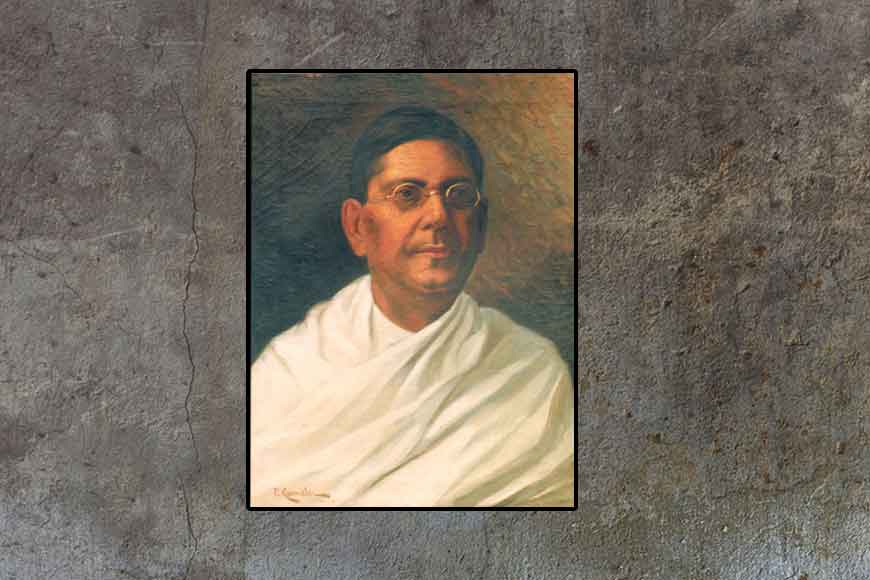Not just a freedom fighter, Chittaranjan Das was a poet too

Chittaranjan Das had tried his hands even in poetry. But we hardly know of that aspect of this genius and mentor to many revolutionaries during India’s freedom movement. He established his reputation as a great poet in 1913 after the publication of the first two vol-umes of his poems Malancha and Mala. In 1913, learning that Sri Aurobindo was in a self-imposed exile in Pondicherry and was in dire financial need, Deshbandhu Chittranjan Das offered him Rs1000 in exchange for a translation of his Book of Poems called Sagar-Sangeet (Sea-Songs). Sri Aurobindo agreed to translate the poems and completed the work in 1913. This English translation of the poems of CR Das along with his other writings was, eventually was published, by Ganesh and Co., Madras, in 1923.
Twenty-five years later Sri Aurobindo wrote of his English rendering of CR Das’s Ben-gali poems: “I was not... self-moved to translate this work, however beautiful I found it: I might even be accused of having written the translation as a pot-boiler, for Das knowing my impecunious and precarious situation at Pondicherry offered me Rs. 1,000 for the work. Nevertheless, I tried to give his beautiful Bengali lines as excellent a shape of Eng-lish poetry as I could manage.”
GB shares one of those English translations
Songs of the Sea (1870-1925)
O thou unhoped-for elusive wonder of the skies...
I lean to thee a listening ear...
Long gazing on this dawn and restless sea...
The flute of dawn has rung out on the sea...
Upon what bosom shall I lay my bliss...
Dawn has become to me a golden fold...
Behold, the perfect-gloried dawn has come...
I have no art of speech, no charm of song...
All day within me only one music rings...
What is this play thou playest with my life...
My heart wings restless with this music's pain...
O painter, thou thy marvellous art didst use...
O now today like a too brilliant dream...
The day is filled with clouds and dusk and grey...
Today the heavens are sealed with clouds and blind...
This is not now the lyre's melodious stream...
When thy enormous wind has filled my breast...
O high stark Death, ascetic proud and free...
O loud blind conqueror, stay thy furious car...
Thou hast come back, O Lord! this soul, thy sky...
The light of the young dawn round every limb...
O today in heaven there rings high a mournful strain...
Sleep, sleep through clouded moons, O sea, at last...
Where have I seen thee? where have clasped thy hand...
None is awake in all the world but I...
The sun has not yet risen. Luring night...
The sunbeams fall and kiss thy lips and gleam...
Nay, nay, let be! O not today that sound...
How many aeons hast thou flowed like this...
What years, what clime, what dim and distant shore...
My sleepless midnight thou hast filled indeed...
Lighting small lamps and in a little room...
Evening has not descended yet, fast sets the sun...
In this hushed evening on thy billows grey...
Evening has fallen upon the world; its fitting tone...
The great heaven have no voice, the world is lying still...
O by long prayer, by hard attempt have bloomed two flowers, thy eyes...
Here there is light, - is it darkness on thy farther shore...
Burns on that other shore the mystic light...
This shore and that shore, - I am tired, they pall...
Paying a fitting tribute, Dr J C Ghosh later observed: ‘C.R. Das never regarded poetry as his calling, but there can be no doubt that some of his poems will find an abiding place in Bengali literature. Though very few of his poems touch the highest watermark of genius, there are very few poets in Bengal, leaving out Tagore, whose average performance sus-tains such a high level, as Chittaranjan Das’ did. His poems possess the additional interest of a highly illuminating spiritual documentary.’










